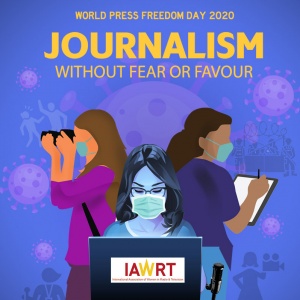African Women Journalist Forum gather 300 journalists in Casablanca, Morocco
Strengthening the capacity of African media to cover the subject of climate change
By Nankwanga Eunice Kasirye
Even when Africa is a low emitter of greenhouse gases, it pays heavily for global warming through climate-change hampered development, impoverished biodiversity, destroyed eco system and jeopardized progress in security and stability. It is therefore important for Africa as a continent to understand her true dilemma, craft own solutions and implement through tailor-made modalities. Comprehensive understanding of the true threat of climate change is crucial for decisive realistic mitigation approaches but this cannot be achieved without effective media involvement as partners and agents of change.
It is upon this background that the third edition of the African Women Journalist Forum was held in March 2020, bringing together more than 300 journalists in Casablanca, Morocco. The Forum met under the theme Emergency Climate Change: African Media, Agents of Change which complements the fact that, media is the source of information and influence positive change as well as help raise global awareness of the challenges facing less developed nations.
Moroccan Foreign Minister Nasser Bourita officially opened the third edition of the African Women Journalist Forum. He emphasized the relevance of the media as willing partners and agents of change in the fight to avert the adverse effects of climate change, especially women journalists with their associated commitment. Nasser explores the usual vigor female journalists would add on the struggle since in their capacity as women, they directly get affected by the negative effects of climate change such as drought, floods and poor food harvest. As mothers, the minister clarified, they trek distances in search for water, and their babies are affected with malnutrition and cannot move when roads are cut off by floods. He said the decision to incorporate women journalists as partners and agents to avert effects of climate change cannot be underestimated and should be given all the support necessary to blossom.
The participants debated modalities for effective media partnership and agency based on seven different thematic areas that included:
– succeeding in Africa’s energy transition issues and challenges;
– the challenges of sustainable management of water resources;
– sustainable agriculture; a green economy for Africa,
– health impact of climate change, which strategy to adopt;
– what sustainable developments for African cities;
– waste management, a decisive lever in the fight against climate change;
– adaptation of climate change – the media can be agents of change
The later thematic area was unanimously adopted as the 2020/2021 action plan.
The adopted 2020/2021 action plan aims at achieving goals that include:
– Mobilizing the African media for the stimulation of public debates around issues of climate change and its impact of African countries.
– Contribute to enrich the knowledge of African public opinion on the impact of global warming, adaptation and mitigation measures.
– Foster greater visibility of climate issues in the African media.
– Rely on the African Women journalist’s network to consolidate compliance with the journalist rules and professional ethics in dealing with climate and environmental issues.
– Establish a real force for citizen proposal and influence media organizations essential for effective and powerful dissemination of information.
Violet Gonda, the President of the International Association of Women in Radio and Television said it is long overdue to integrate the African media as agents in climate change Impact assessment, adaptation and mitigation. She added that the journalist should be effectively trained to understand the subject of climate change the related areas of interest to authoritatively inform and influence public paradigm shift. She also challenged a panel of climate change experts “why Africans from Sub-Saharan Africa are still being made to fly via Doha, Dubai, Europe to connect to countries on the continent, if we are talking about reducing carbon emissions on the continent?”
Almost all journalists in attendance from Sub-Saharan Africa could not secure direct flights to North Africa from their respective countries, but spent a couple of days in transit flying, for example, from Kenya to Dubai or from South Africa to France to get connecting to Casablanca. The IAWRT president argued that policy makers on the continent should look into more effective measures to reduce pollution and of connecting Africa especially on the issue of how people travel between countries in Africa.
Salim Cheikh, the General manager of 2M, the forum initiators, said the choice of climate change as the main theme for the forum’s third edition is to reaffirm the major role of the media in informing and raising awareness among African societies on major strategic issues. The media is also the major catalyst for initiating a paradigm shift for a common vision and changing perceptions linked the realities of Africa as a continent.
According to Khadijja Boujanoui, the Chairperson of 2M, the 3rd edition of the Forum for Women Journalists of Africa’s emphasis should be on strengthening the capacity of African media to cover the subject of climate change as stimuli to African plan and implementation of national policies that regulate the impact of climate change. She notes the need for journalists to have accurate and relevant information both on climate phenomena and on policies at the regional, national and international levels.
Fettouma Djerrari BenabDembi, an expert on Earth and Humanism, stressed that the media as the agent of change has the obligation to promote Climate Resilience as the area of concentration through giving back to the soil that provides food to humanity. She said African communities need to be educated that good farming practices with concentration on organic crops create climate resilience through raw material organic residues turned into hygienic residues for fertilization regeneration. The composites residues do not only regenerate soil health/ fertility but also boosts the economic status of the farmers the expert asserts. The organic residue from farm produce could be collected for farm fertilizers sold to other famers and current projected statistics indicate that a tone of tomato residue may cost a farmer 27 Euros but sells off at 40 Euros which makes an economic sense.
Africa has the potential to thrive on sustainable agriculture since she owns 25% of fertile land in the world with the capacity to produce organic food, the most sought after in the world. The media as the partner and agent of change for sustainable agriculture with key emphasis to organic crops and bio diversity, should be able to create messages in languages that speak directly to the local farmers if comprehensive appreciation of sustainable agriculture should be supported and fully re-integrated with in Africa.
IAWRT President Violet Gonda, Vice President Abeer Saady and IAWRT Uganda chapter president Nankwanga Eunice Kasirye at the African Women Journalist Forum

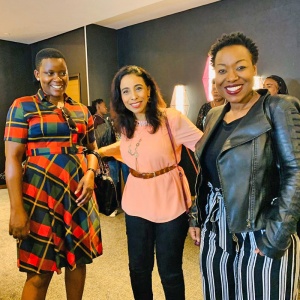
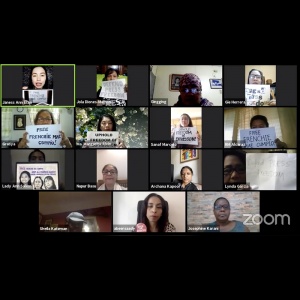
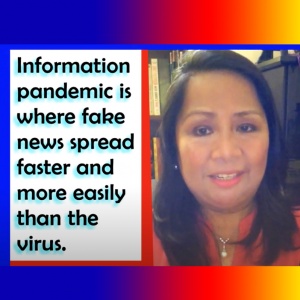
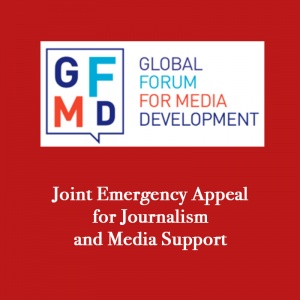
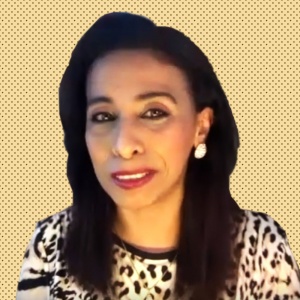

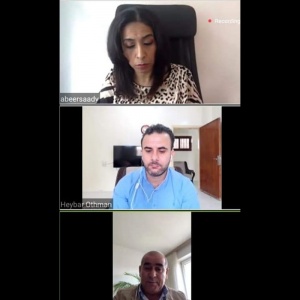
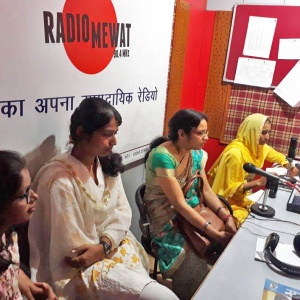
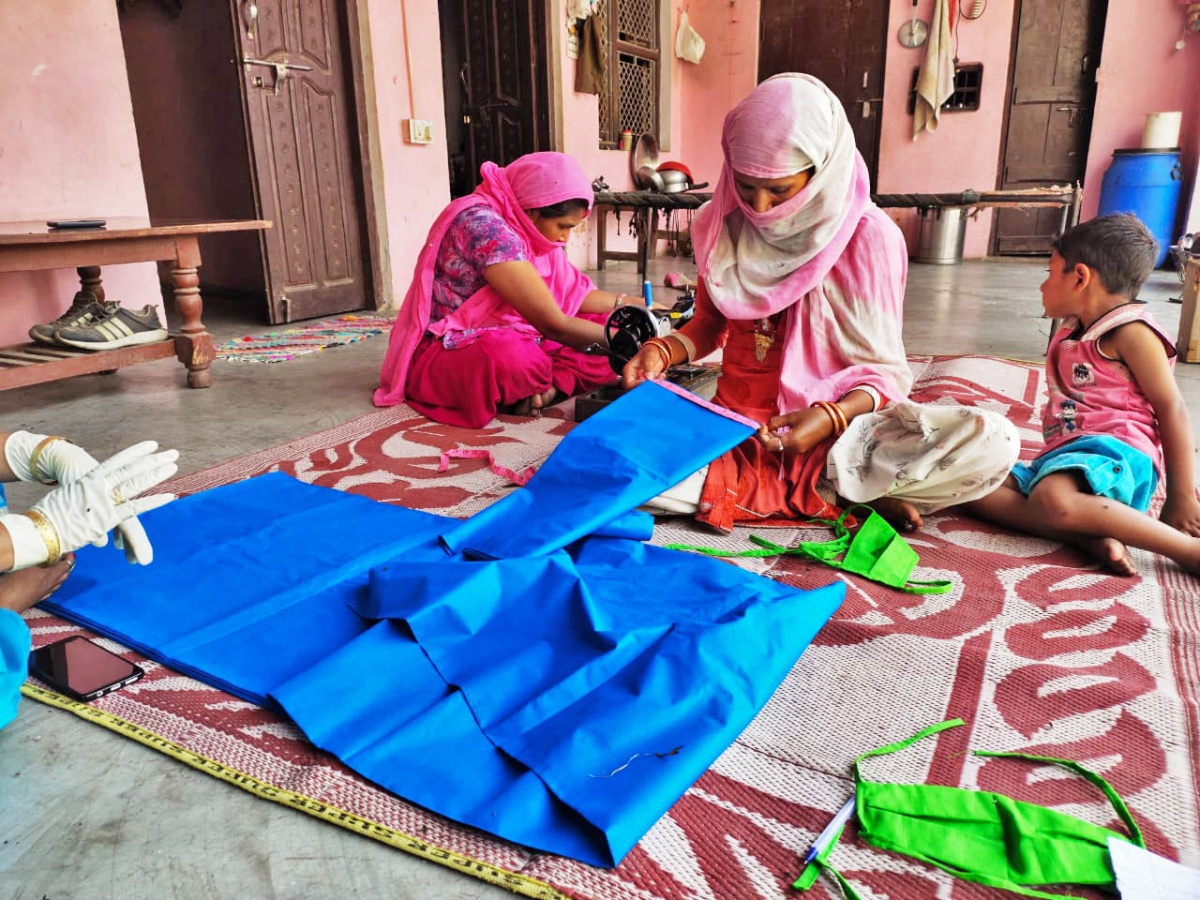 Women are the main focus of the radio, but they have limited access to the mobile phone. To tide over this problem, the women reporters of Radio Mewat had been narrowcasting programmes on women’s health and nutrition, addressing domestic violence, teaching them thrift, investing in children’s education, etc. This gave the reporters an opportunity to not only share their programmes but also listen and record stories of the women and the challenges that they face. Today, in the lockdown period, Radio Mewat’s women reporters are calling 20-30 women every day to check on them, listen to them and give them an opportunity to speak and voice their concerns.
Women are the main focus of the radio, but they have limited access to the mobile phone. To tide over this problem, the women reporters of Radio Mewat had been narrowcasting programmes on women’s health and nutrition, addressing domestic violence, teaching them thrift, investing in children’s education, etc. This gave the reporters an opportunity to not only share their programmes but also listen and record stories of the women and the challenges that they face. Today, in the lockdown period, Radio Mewat’s women reporters are calling 20-30 women every day to check on them, listen to them and give them an opportunity to speak and voice their concerns. 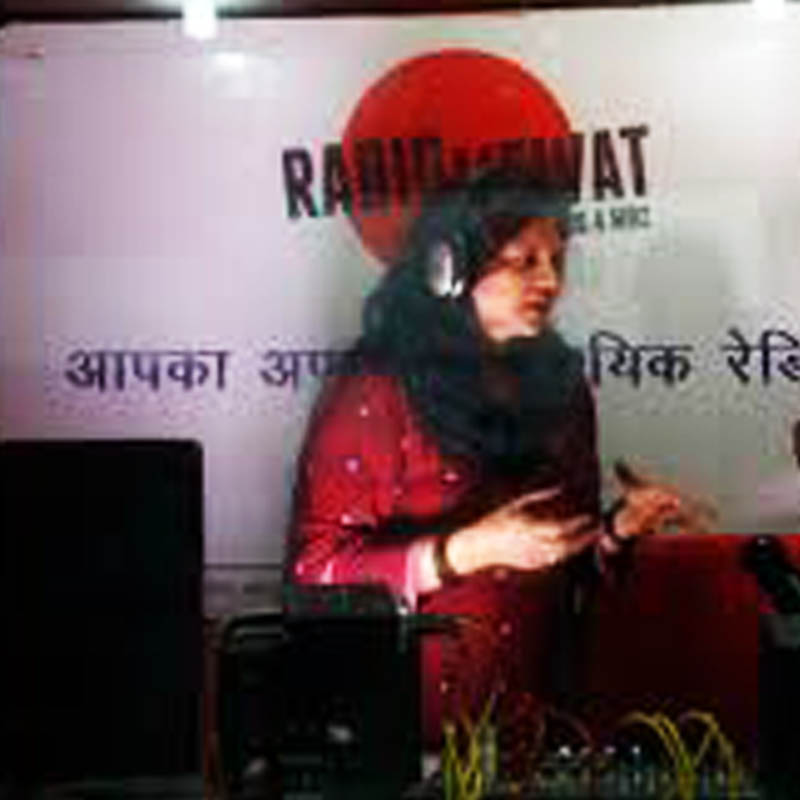 Until March 31, 2020, this district did not report a single case of COVID-19. However, in less than two weeks, Nuh saw an explosion of coronavirus cases. The number of positive COVID-19 cases in the district went up from 1 to 58 in less than 3 weeks, primarily due to the returnees of Tablighi Jamaat testing positive. The one and only Medical College was turned into a COVID-19 center with patients ailing from other diseases, shifted to other facilities.
Until March 31, 2020, this district did not report a single case of COVID-19. However, in less than two weeks, Nuh saw an explosion of coronavirus cases. The number of positive COVID-19 cases in the district went up from 1 to 58 in less than 3 weeks, primarily due to the returnees of Tablighi Jamaat testing positive. The one and only Medical College was turned into a COVID-19 center with patients ailing from other diseases, shifted to other facilities. 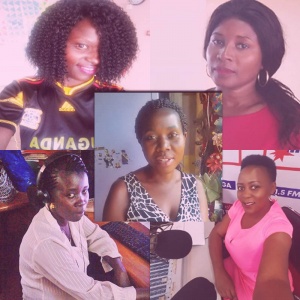
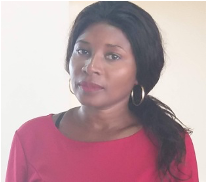 Keno Lilian is a chief News Editor at Radio One, one of the most listened to radio in the Uganda. She says for purposes of social distancing during the COVID-19 epidemic scare the majority of the newsroom staff were stopped from work, leaving a few at the station. Lillian says it is harder for the female journalists to be effective during the lockdown since most of them don’t have the means to get to office and the field. The male journalists are preferred since they are able to take extra efforts to ride bicycles to the field and office which could be a little harder with the female counterparts for several reasons not ignoring the cultural orientations surrounding cycling.
Keno Lilian is a chief News Editor at Radio One, one of the most listened to radio in the Uganda. She says for purposes of social distancing during the COVID-19 epidemic scare the majority of the newsroom staff were stopped from work, leaving a few at the station. Lillian says it is harder for the female journalists to be effective during the lockdown since most of them don’t have the means to get to office and the field. The male journalists are preferred since they are able to take extra efforts to ride bicycles to the field and office which could be a little harder with the female counterparts for several reasons not ignoring the cultural orientations surrounding cycling. 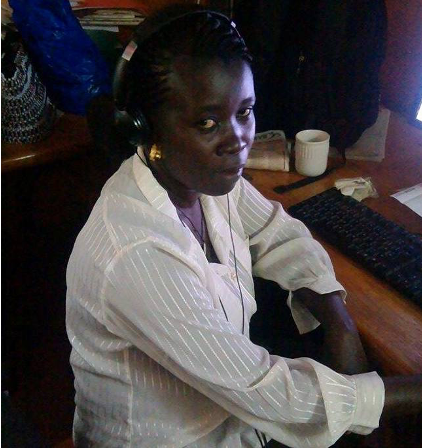
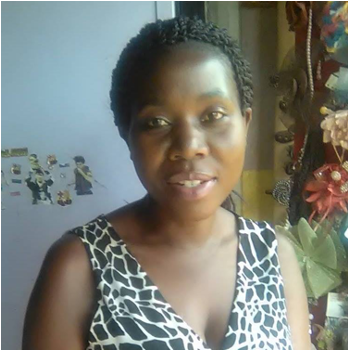 Veroca Kayanga is senior court journalists she has been working for her media station for more than 10 year, but has never been put on permanent staff or given any incentives besides the basic pay per stories she files. Veronica says it is generally so hard to operate in normal circumstances but harder at a time like this when the world is on a lockdown. She says despite the lockdown of public transport and no facilitation from her employer, she has to walk her way to the field, to office and back to her home because she has to survive despite the complications that come with lockdown. She laments that as female journalists she works for basic survival with no hope of career development and growth because it is not provided for even when one works to the best of her abilities.
Veroca Kayanga is senior court journalists she has been working for her media station for more than 10 year, but has never been put on permanent staff or given any incentives besides the basic pay per stories she files. Veronica says it is generally so hard to operate in normal circumstances but harder at a time like this when the world is on a lockdown. She says despite the lockdown of public transport and no facilitation from her employer, she has to walk her way to the field, to office and back to her home because she has to survive despite the complications that come with lockdown. She laments that as female journalists she works for basic survival with no hope of career development and growth because it is not provided for even when one works to the best of her abilities.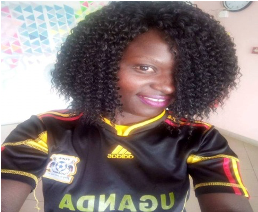 Nalujja Shamshad is a health reporter who has been at the forefront of reporting about COVID-19 since its outbreak in Uganda. Shamshad says besides the hardship in transport that sometimes calls for walking long distances to work, her fellow journalists resented her for fear of contracting the virus from her. Shamasha says most journalists did not want to cover stories around COVID-19, but she took a brave stand to take on the assignments even when it requires going into quarantine areas where the exposed persons are kept for monitoring by the medical teams. Despite the resentment and other hardships involved, Shamashad is grateful that she braved covering the COVID-19 stories and it is upon that she was chosen among the few allowed to work during the lockdown and that is important for her since she earns per a story filed.
Nalujja Shamshad is a health reporter who has been at the forefront of reporting about COVID-19 since its outbreak in Uganda. Shamshad says besides the hardship in transport that sometimes calls for walking long distances to work, her fellow journalists resented her for fear of contracting the virus from her. Shamasha says most journalists did not want to cover stories around COVID-19, but she took a brave stand to take on the assignments even when it requires going into quarantine areas where the exposed persons are kept for monitoring by the medical teams. Despite the resentment and other hardships involved, Shamashad is grateful that she braved covering the COVID-19 stories and it is upon that she was chosen among the few allowed to work during the lockdown and that is important for her since she earns per a story filed.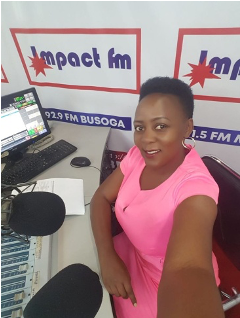 Fleriah Nalwanga is a manager at Impact Radio and Dream Television. She says the COVID-19 woos have hit the media industry real hard. Fleria says they have been forced to make drastic cuts on cost, send the biggest percentage of the staff home and unfortunately departments with more women as staff is most affected. She clarifies that the staff members who were willing to stay at the station premises during the COVID-19 crisis were preferred and all of them are male workers. Those sent home are no longer paid a salary, but given allowances and some food handouts and it is likely that majority may not be called back to their jobs even after the COVID-19 crisis.
Fleriah Nalwanga is a manager at Impact Radio and Dream Television. She says the COVID-19 woos have hit the media industry real hard. Fleria says they have been forced to make drastic cuts on cost, send the biggest percentage of the staff home and unfortunately departments with more women as staff is most affected. She clarifies that the staff members who were willing to stay at the station premises during the COVID-19 crisis were preferred and all of them are male workers. Those sent home are no longer paid a salary, but given allowances and some food handouts and it is likely that majority may not be called back to their jobs even after the COVID-19 crisis.